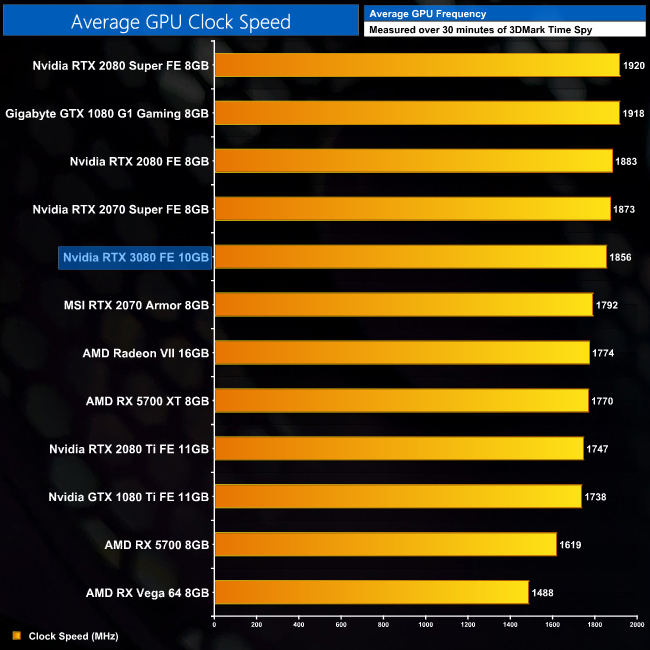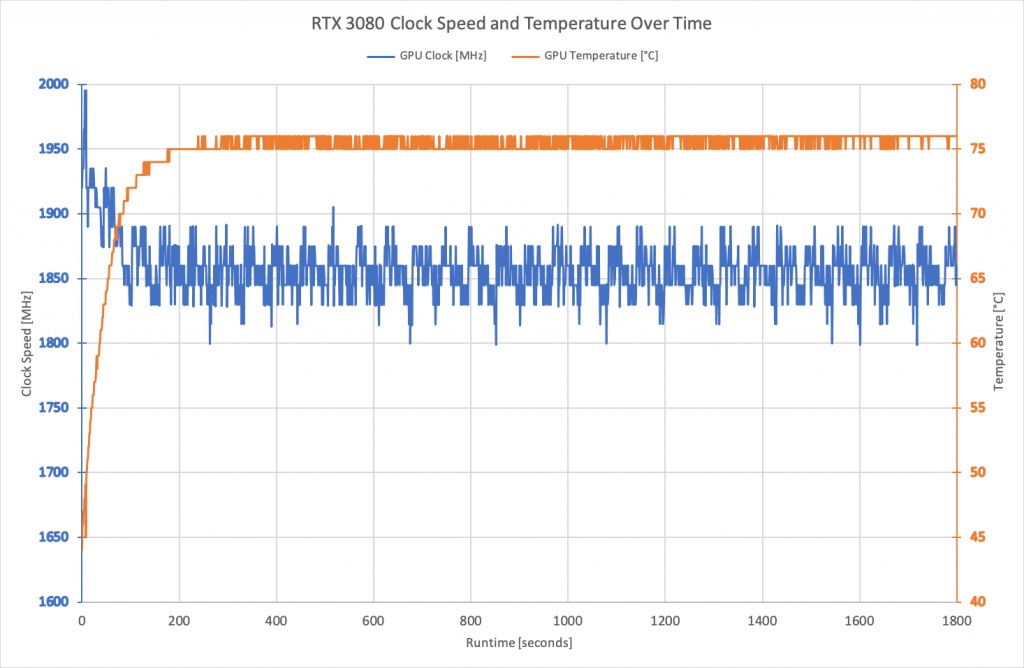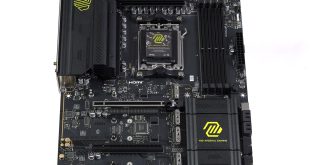Here we present the average clock speed for each graphics card while running the 3DMark Time Spy stress test for 30 minutes. We use GPU-Z to record the GPU core frequency during the Time Spy runs. We calculate the average core frequency during the 30 minute run to present here.
Click to enlarge.
In terms of overall clock speed behaviour, Ampere doesn't appear to have changed anything compared to Turing. GPU Boost will still push clock speed well above the rated frequency, before settling down as temperature increases. These adjustments still happen in steps of 15MHz so those hoping for more granular control will be disappointed.
As for the actual speed on the RTX 3080, it's boosting to pretty much the same levels as last generation's Founders Editions. It may not be exactly as fast – the 2080 Super was clocked quite aggressively – but considering the rated boost clock is lower at 1710MHz, the average frequency just shy of 1860MHz is good to see.
 KitGuru KitGuru.net – Tech News | Hardware News | Hardware Reviews | IOS | Mobile | Gaming | Graphics Cards
KitGuru KitGuru.net – Tech News | Hardware News | Hardware Reviews | IOS | Mobile | Gaming | Graphics Cards




